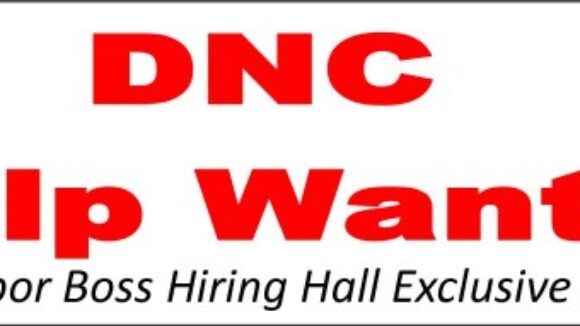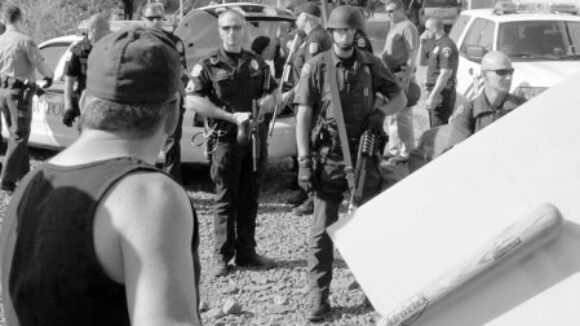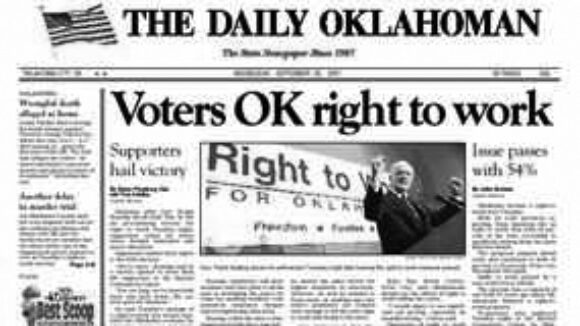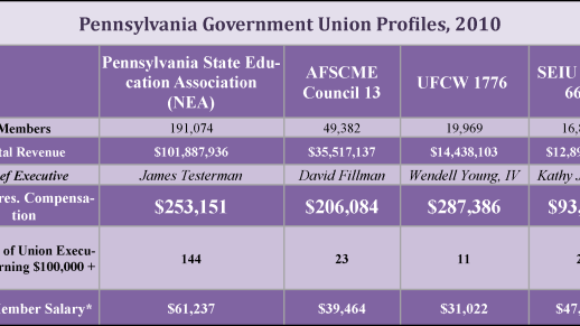Beleaguered Local Cops 'Completely Outnumbered'
In southwestern Washington last month, overpowered police were unable to prevent bat- and ax handle-wielding union toughs from systematically sabotaging a $200 million grain terminal. No arrests were made at the scene. Credit: AP Photo/Don Ryan
Bat- and Pipe-Wielding Union Thugs Rampage in Washington State
(Source: October 2011 NRTWC Newsletter)
For decades, Right to Work advocates have fought to close the judicially created loophole in federal anti-extortion law that exempts threats, vandalism and violence perpetrated to secure so-called "legitimate union objectives," including monopoly-bargaining and forced-dues privileges over employees.
In explaining the importance of closing the loophole created 38 years ago in the U.S. Supreme Court's controversial 5-4 Enmons decision, National Right to Work Committee spokesmen and their allies have pointed out, time and again, that local and state law enforcement are often overwhelmed by violent union conspiracies.
Just last month, the local police in Longview, Wash., a Columbia River port town, became the latest case in point.
At 4:30 AM on September 8, hundreds of International Longshore and Warehouse Union (ILWU/AFL-CIO) militants stormed a new grain terminal at the Port of Longview.
Big Labor thugs broke down the gates, overwhelmed six security guards, and then converged on the terminal of EGT, a joint venture of U.S., Japanese, and South Korean companies that has been targeted by ILWU chiefs.
A week later, security guard Charlie Cadwell testified before U.S. District Judge Ronald Leighton that every ILWU "protester" he saw that night was carrying a baseball bat, lead pipe, garden tool, or other weapon.
As the AP reported, Mr. Cadwell told the judge he was first pulled out of his car by one Big Labor zealot, then another swung a metal pipe at him.
"I told him," Mr. Cadwell continued, "You have 50 cameras on you, and law enforcement is on its way. He said, '(Expletive) you. We're not here for you; we're here for the train.'"
Meanwhile, yet another union militant drove off with his car and eventually ran it into a ditch. Mr. Cadwell said "about 40 to 50 people were throwing rocks at him, and that he was hit between his eyes and in his knee," according to the AP account.
'I Wasn't About' to Stop 'These People From Doing Whatever It Is They Were Going to Do'
The ILWU lawbreakers in Washington State evidently feel no more compunction about using threats and violence against police than they do about assaulting and terrorizing security guards.



